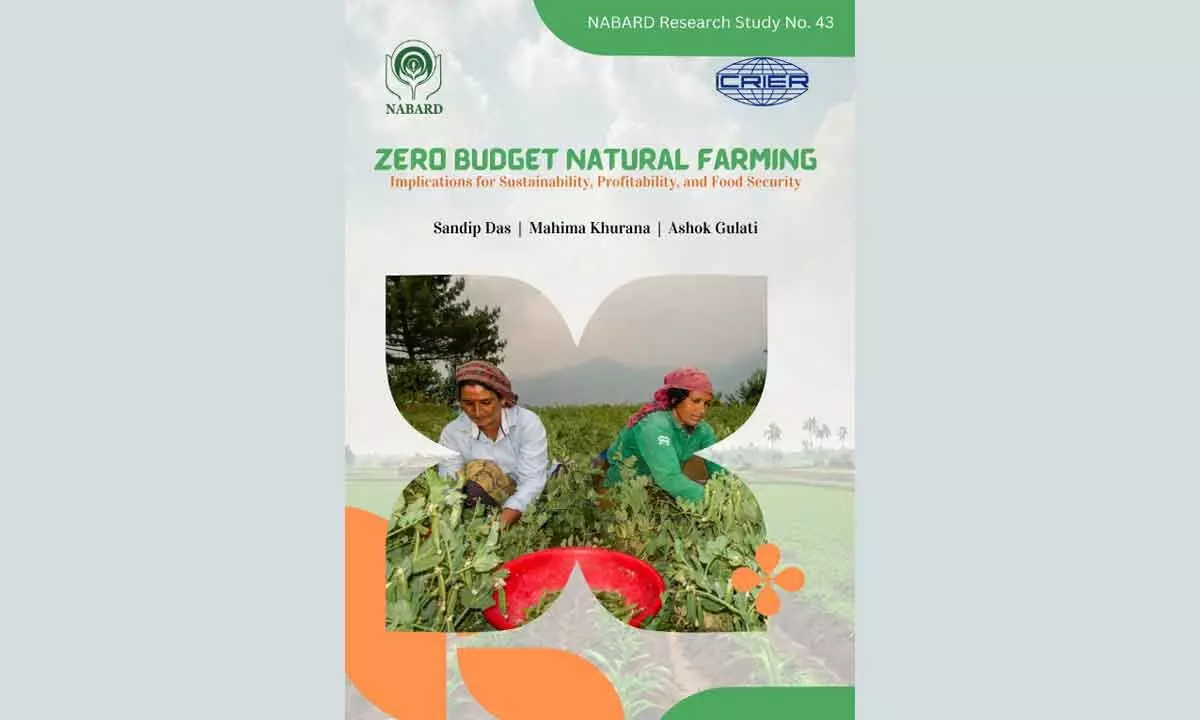Nabard study flags zero budget natural farming
Expresses fear that farm yields may plummet to intolerable pre-green revolution era levels

If the yield and production plummet, as the ICAR-IIFSR findings advocate, the implications for food security can be severe
New Delhi: A study by the National Bank for Agriculture and Rural Development (Nabard) and the Indian Council for Research on International Economic Relations (Icrier) has come down heavily against Zero Budget Natural Farming (ZBNF), renamed as Bhartiya Prakritik Krishi Padhati (BPKP). It has expressed the fear of the farm yields plummeting to intolerable pre-green revolution era levels.
The study, authored by Ashok Gulati, Sandip Das and Mahima Khurana, has cautioned policy makers that authoritative findings suggest that ZBNF can have severe implications for food security.
ZBNF got some traction in recent times, with Prime Minister Narendra Modi referring to it at 14th UN Convention to Combat Desertification (UNCCD) and Finance Minister Nirmala Sitharaman in her Budget speeches in 2019-20, 2020-21, and 2022-23. It was also mentioned by the NITI Aayog and Economic Survey.
Andhra Pradesh has adopted ZBNF extensively, covering 7.5 lakh farmers and farm workers on roughly 100,000 hectares of land; its vision is to convert the entire 80 lakh hectares of land in the State into natural farming by 2027, the Nabard-Icrier study says. Other States like Himachal Pradesh are also following a similar model. Most studies on ZBNF capture the experiences of the farmers across Karnataka, Andhra Pradesh, and Maharashtra.
The Centre for Economic and Social Studies (CESS) and the Institute for Development Studies Andhra Pradesh (IDSAP), Hyderabad-based research institutes, have conducted the assessment of ZBNF, analysing the crop-cutting experiments for yield and surveying farmers for qualitative parameters to judge the efficacy of farming practices of ZBNF in Andhra Pradesh.
Moreover, Indian Council of Agricultural Research (ICAR) has recently completed its three-year-long experiment on different ZBNF treatments at four locations across the country. Together, these two studies provide insights into the implications of ZBNF on profitability, productivity, food security, and sustainability; and the precise agenda of this paper is to uncover that, the Nabard-Icrier study says.
The sheer disparity in the outcomes of the two experiments conducted by CESS-IDSAP and ICAR-Indian Institute of Farming Systems Research suggests the importance of long-term experimentation before declaring this as a nationwide agriculture practice, the study says, adding that if the yield and production plummet, as the ICAR-IIFSR findings advocate, the implications for food security can be severe.




